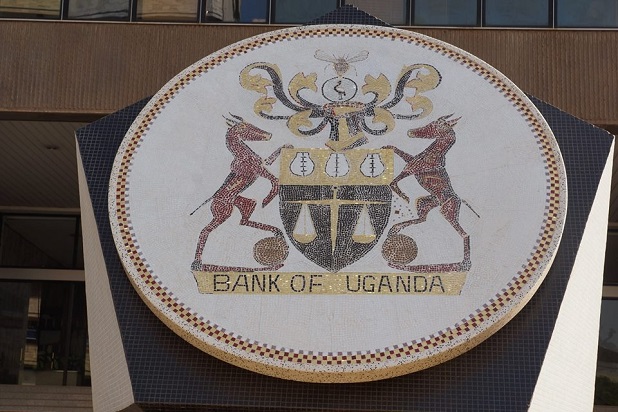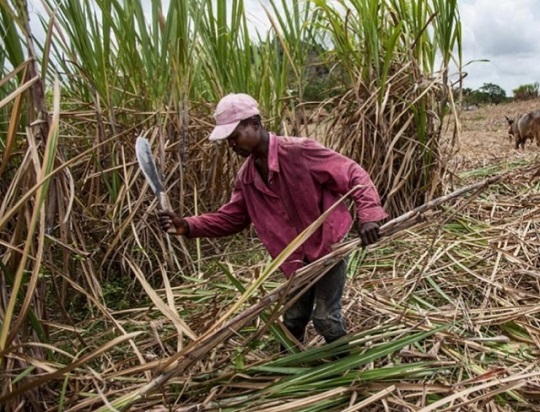“The way you are behaving, you are antagonizing our old sugar people and I don’t know the relationship you have with small sugar people. Some of you have got a suspicious relationship with the small sugar people and now you are sabotaging my plan,” said President Yoweri Museveni last Friday while addressing NRM MPs at the National Leadership Institute in Kyankwanzi.
He said he was sending back the Sugar Bill 2016 to Parliament because signing it in its current form would cripple the sugar sector.
The President said that the legislation in its current form would hamper his plans to request the sugar manufacturers to produce refined sugar to be used in manufacturing of medicines because the sugar produced in Uganda is for tea and calls to have sugar producers refine their sugar for pharmaceutical companies would be dealt with a blow if the current Bill is passed in its current form.
“Some of you leaders get mixed up like the way you handled sugar bill which I am going to send back to you. You are totally confused, when you are managing you aren’t a priest, it isn’t a church service. The way you passed sugar bill, this industry will collapse,” said Museveni.
However, a section of MPs have vowed to fight on and ensure the Sugar Bill 2016 is signed into law despite threats from President not to sign the legislation until the complaints of investors are catered for.
While responding to the President’s remarks today, Shadow Minister of Trade and Industry, Fred Turyamuheza, who is also the Rugumbura County MP defended the passing of the Bill, saying it was in line with liberalization policy of Uganda’s economy and would work at putting an end to the monopolistic tendencies because the sugar sector was immersed in practices that were curtailing marketing rights of farmers.
“We wanted to avoid monopoly, protectionism and so that market forces can play out. The Sugar promotes local content, protects upcoming investors who are Ugandans because previously the sugar manufacturers were foreigners,” Turyamuheza said.
He added: “The bill in its state is pro-people and we want to side with our people, who are we to go against them? We want to urge the President to consent to the bill because it is largely in interest of people we represent. If he rejects the bill, whose interests is he serving?”
He also responded to bribery allegations alluded to by the President during the consideration of the Bill, saying the move was aimed at attacking the independence of Parliament.
“The remarks by the President that MPs have special relationship with new sugar manufacturers are intended to attack the independence of MPs, by intimidating and blackmailing them. We shall reject the intimidation and support our people,” said Turyamuheza.
He wondered why the President was putting emphasis on zoning in the sugar industry and not looking at other crops saying there is no way Parliament will make segregative laws that will only serve interest of few whining individuals instead of legislations to protect citizens.
“We can’t legislate for a few individuals, Madhivani has been in Busoga for many years and Busoga is still poor, what new thing is he going to do? We shouldn’t be reactionary because someone has logged a complaint,” Turyamuheza said.
Henry Kibalya, the Bugabula South MP rejected claims that the new Sugar Bill would cripple the sugar industry arguing that since the coming into the market of new investors in Busoga region, the prices of sugar have stablised and farmers have started going back to sugar cane growing after being earlier pushed out by exploitative old sugar manufacturers.
He said; “People were forced to burn plantation because one monopoly individual had refused to buy sugarcane. But new investors came on board and were able to buy sugarcane. How shall we cripple industry? The market had been stabilised because new players came on board. If you leave one person in market to determine life of farmers, we need to liberalise. I know the same forces that fought it will fight it but we are still around.”
He added; “I can’t legislate against my people and subject my people to absolute poverty. Sugarcane industry will not affect the country. If someone wants to protect interest of few individuals instead of protect farmers, we shall not support it. We shall do whatever it takes to help Ugandans who are voiceless.”
While tabling the bill in 2017, Minister of Trade Amelia Kyambadde said that the Sugar Bill, 2016 seeks to provide for the development, regulation and promotion of the sugar industry to ensure that there is a sustainable, diversified, harmonized, modern and competitive sugar sector.
Section 19 (1) provides for the punishment for anyone that establishes a Sugar Mill, jaggery mill or plant to process any sugar by-products of sugar cane without a valid license from the Board to be guilty of committing a crime and is liable for a fine not exceeding five currency points which amounts to Shs10M.
Another proposal that has raised contention is Section 22 of the Bill that calls for zoning of sugar mills with the proposal to bar the Board from licensing Sugar mills within 25Km radius to each other with the Bill proposing a fine of five currency points (approximately Shs10m) for anyone that sets up their mills within the 25Km radius.
Although the sugar manufacturers welcomed the development, they asked for changes in the fine arguing the penalty is small and demanded Parliament to hike the fine to Shs500m.
However, the proposal was rejected by the Committee on Trade warning that the move would create a monopoly and instead proposed to have a nucleus operating area of 2,000 hectares and proposed an amendment that a sugar mill or plant has a nucleus estate instead of a zone of 2,000 hectares from a 25km radius.





